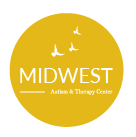Since its development in the 1970s, Applied Behavior Analysis (ABA) therapy has grown by leaps and bounds in ethics, training, and techniques. Previously promoted as a therapy option to help children on the Autism Spectrum become “indistinguishable” from their peers, modern-day clinicians (called Behavior Analysts or BCBAs) have moved to a therapy approach that celebrates the unique strengths of each child. This approach to therapy, called “Neuropositivity”, highlights the need for diversity and the development of positive self-esteem.
With this shift has come the transition into positive reinforcement, rewards, and encouragement to reach developmental goals as well as a more comprehensive approach to care. Modern BCBAs collaborate with a child’s extended care team including their school, families or caregivers, speech therapists, feeding therapists, occupational therapists, and more. In medical speak, we call this “multidisciplinary care” or a “biopsychosocial” approach! This technique can improve communication and teach adaptive life skills to help children be successful in many different settings.
Today, ABA is considered the “gold-standard” therapy option for children on the Autism Spectrum. Part of the reason for its success and evolution is the high standards of care set by the Behavior Analyst Certification Board (BACB) which governs and certifies all clinicians (Behavior Analysts and Behavior Technicians) providing ABA therapy. Every BCBA (Board Certified Behavior Analyst) and RBT (Registered Behavior Technician) is thoroughly trained and held to a strict moral code ensuring quality and ethical treatment practices that encompass dignity, compassion, respect, and integrity for individuals and families of every kind.

